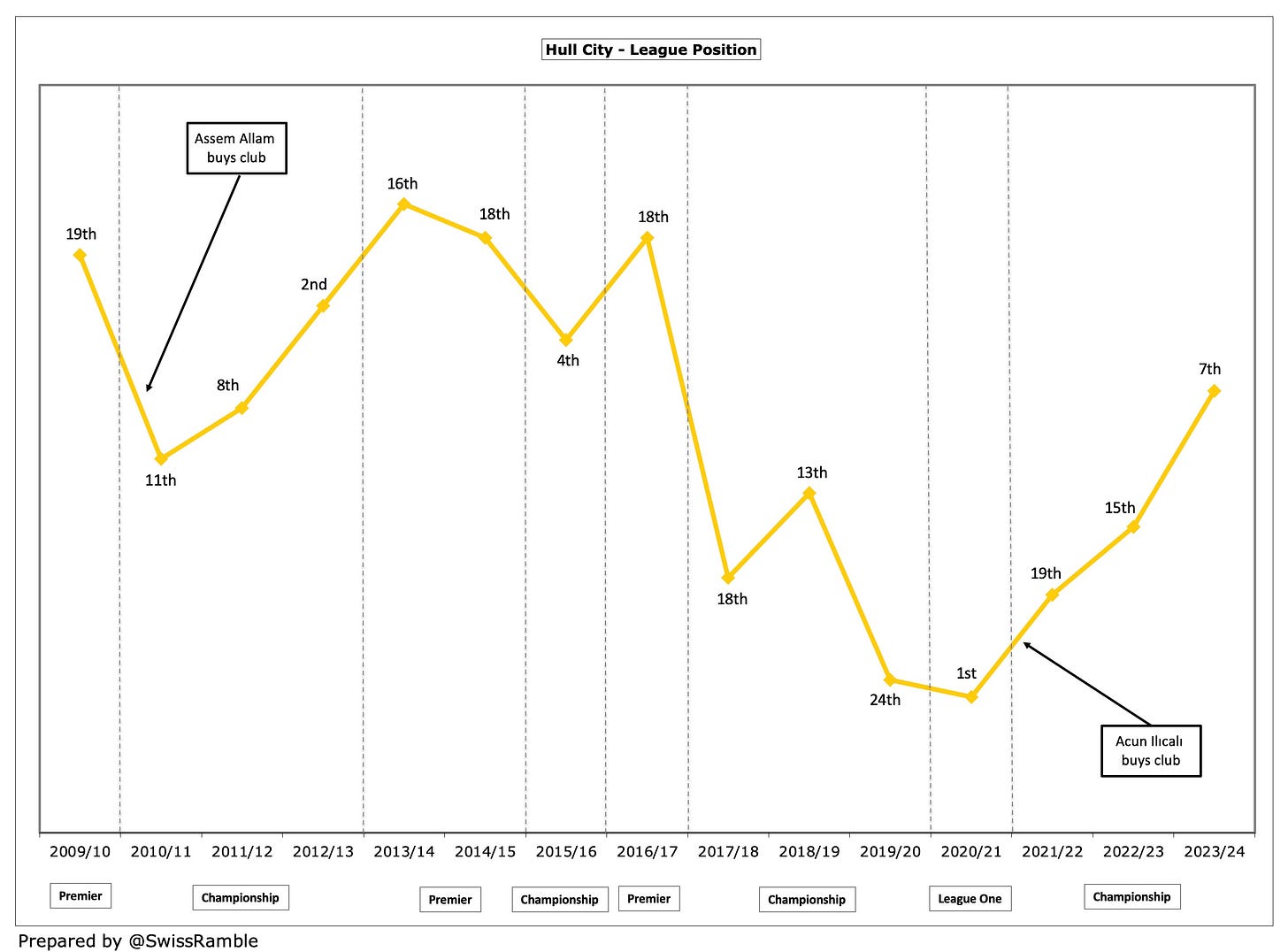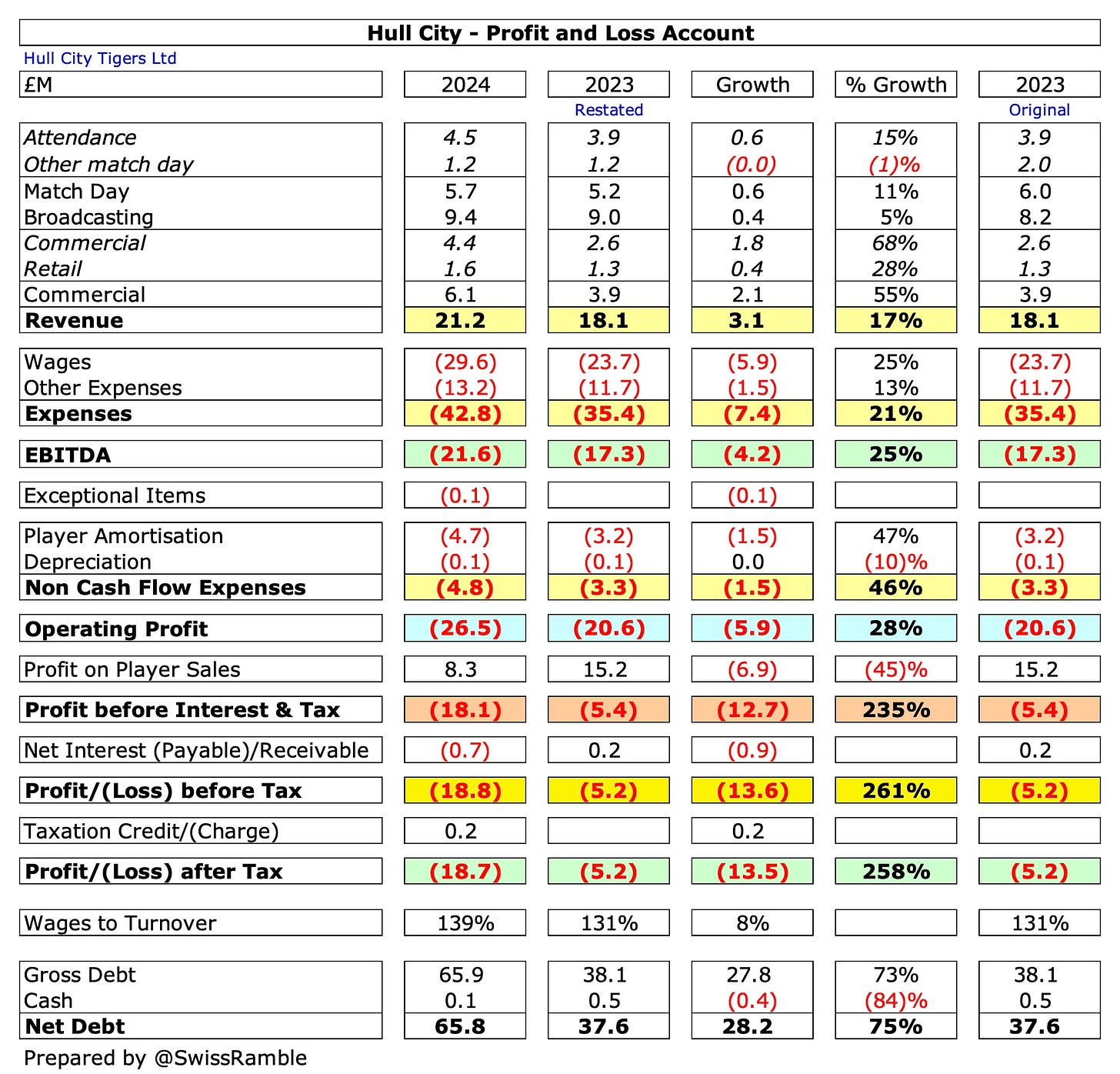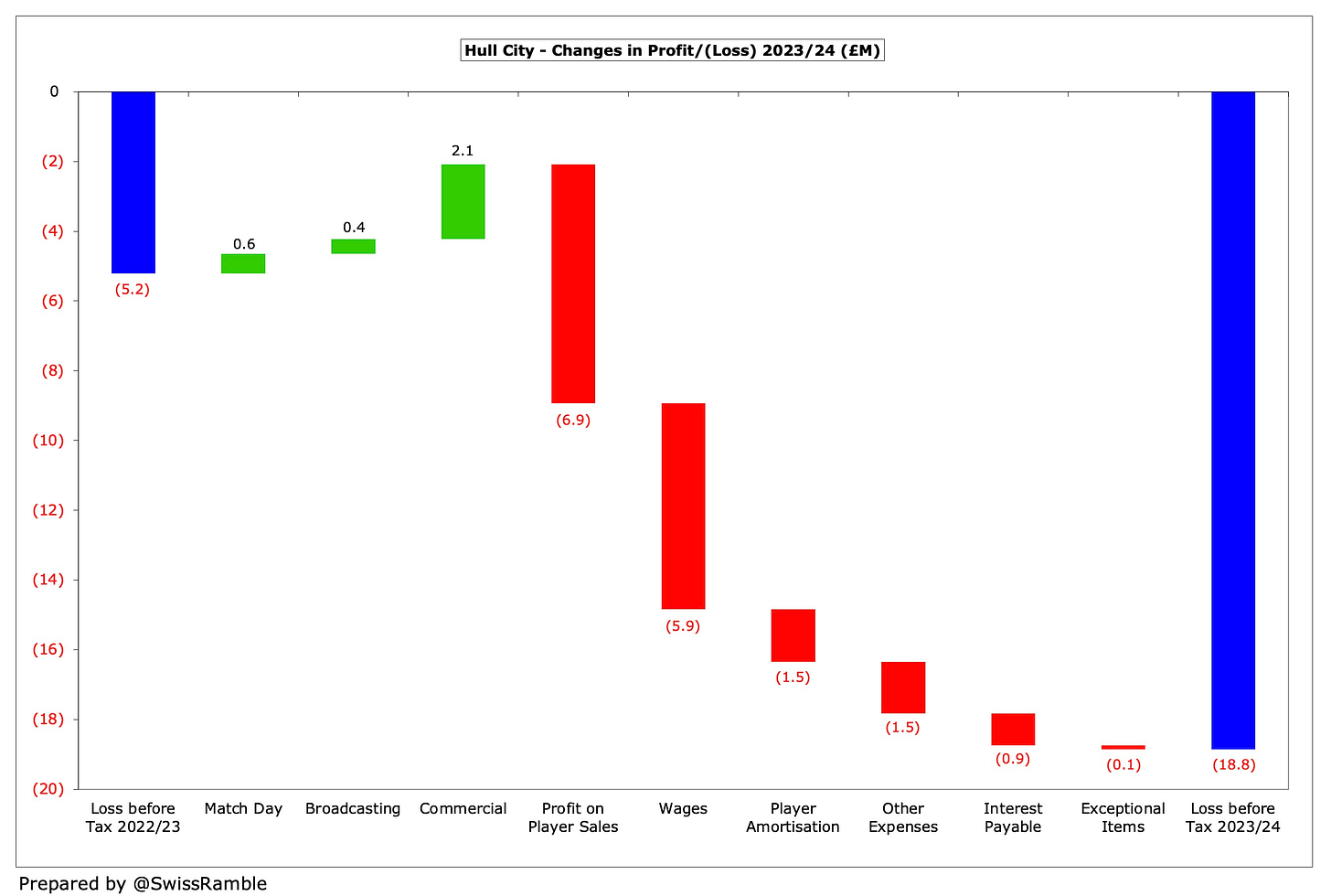Hull City’s 2023/24 accounts covered a season that at one stage promised so much, but ended in disappointment, as they ultimately missed out on the Championship play-offs by just three points. That said, the Tigers did improve from the previous year’s 15th to a very respectable 7th place.
As manager Liam Rosenior said, “It was a positive season, but we couldn’t quite get over the line.” His achievement was recognised with a nomination for Championship manager of the year, though that was not enough to save the popular Englishman from being dismissed by owner Acun Ilıcalı, who bought the club in January 2022.
This could be viewed as a sign of ambition from the Turkish businessman, who has spent big (relatively speaking) in order to improve the club’s chances of promotion to the Premier League - or alternatively as a distinct lack of patience.
Ownership
In fairness, Ilıcalı had initially restored the club’s relationship with its fans after ending the controversial tenure of the Allam family, though he did not have much to beat.
The former owners summed up their period in charge thus, “There have been a lot of ups and downs over the last 11 years or so”, which was one way of putting it.
While it is true that the club reached the Premier League on their watch, spending a total of three seasons in the top flight, they also dropped down to League One, while the spending on the squad had effectively dried up.
City have steadily risen under Ilıcalı, but this season has seen a bit of a reality check, as the club is currently sits just above the relegation zone. Rosenior was replaced by Tim Walter, but the hapless German lasted less than six months, as he was sacked following a run of four straight defeats and nine games without a win (plus some unwise criticism of his own supporters).
This meant that Ilıcalı has now removed no fewer than four managers since his arrival three years ago, including Grant McCann and former Georgian international Shota Arveladze in 2022.
Former Southampton and Reading manager Rubén Sellés is the current incumbent, having been handed the reins this month.
The club’s latest financial results represent the second full season under the Turkish media mogul’s ownership, so let’s take a look at how things have changed during this period.
Profit/(Loss) 2023/24
Hull City’s pre-tax loss more than tripled from £5.2m to £18.8m in 2023/24, even though revenue rose £3.1m (17%) from £18.1m to £21.2m, as profit from player sales fell £6.9m from £15.2m to £8.3m.
Investment in the squad led to significant growth in operating expenses, which increased by £9.0m (23%) from £38.7m to £47.7m, while net interest swung from £0.2m receivable to £0.7m payable.
City said that they had recorded “strong revenue growth” with all three streams rising. The largest increase was in commercial, which rose £2.2m (55%) from £3.9m to £6.1m. Match day was up £0.5m (11%) from £5.2m to £5.7m, while broadcasting was £0.4m (5%) higher at £9.4m.
Note: the club restated the split of its prior year revenue comparatives, reducing match day by £0.8m with the offsetting increase in broadcasting, which makes sense as broadcasting did look on the low side in the prior year accounts.
However, the cost of Hull’s renewed ambition was reflected in the wage bill, which shot up £5.9m (25%) from £23.7m to £29.6m and player amortisation was up £1.5m (47%) from £3.2m to £4.7m. Other expenses increased by £1.5m (13%) from £11.7m to £13.2m.
Only five Championship clubs have to date published accounts for 2023/24, but we can see that City’s £18.8m pre-tax loss is firmly in the bottom half of this division, looking at the results from the previous season.
Keep reading with a 7-day free trial
Subscribe to The Swiss Ramble to keep reading this post and get 7 days of free access to the full post archives.





